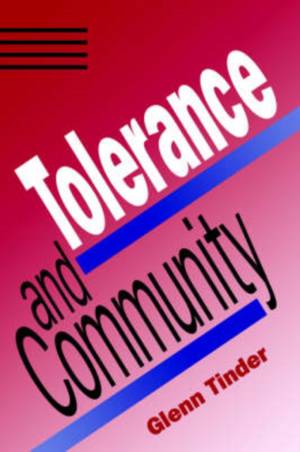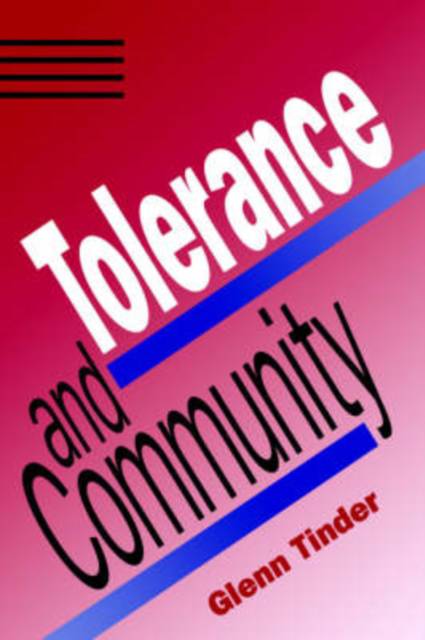
- Retrait gratuit dans votre magasin Club
- 7.000.000 titres dans notre catalogue
- Payer en toute sécurité
- Toujours un magasin près de chez vous
- Retrait gratuit dans votre magasin Club
- 7.000.0000 titres dans notre catalogue
- Payer en toute sécurité
- Toujours un magasin près de chez vous
Tolerance and Community Tolerance and Community Tolerance and Community
Glenn TinderDescription
Civility, political or social, has not come easily to humankind in the twentieth century, as the violence of the times amply illustrates; it has been battered and tried by the fears and uncertainties spreading the world over. But Glenn Tinder argues persuasively in Tolerance and Community that to be civil is nothing less than to be civilized, and that we must move beyond the traditional arguments of John Locke and John Stuart Mill--rooted in individualism, rationalism, and historical optimism--toward a more communal and more realistic concept of tolerance.
As one of the nation's foremost thinkers, Tinder believes that tolerance is crucial to the achievement of the right kind of community. He asks how we can really be serious about truth and about our relations with one another while still making room in our world for people who disagree with us. Communication grounded in the principles of veracity and responsibility plays a crucial role in Tinder's community. Principled openness to others, even amid the risks inherent in freedom of speech, allows tolerance to be understood, not as detachment from others, but as attentiveness to them.
Tinder also highlights the indispensability of political prudence in making the practical decisions about tolerance faced by both citizens and government. In the course of his argument, he addresses the strengths and weaknesses of traditional liberalism on the subject of tolerance, as well as the strengths and weaknesses of conservatism and radicalism.
Tinder has been led to his ideas by such philosophers as Martin Buber and Karl Jaspers. In developing his argument for tolerance, however, he goes further by reasoning within a religious context and with attention to the history of theology and philosophy. Substantiating his case with plentiful evidence, Tinder shows that tolerance is at the core of civility and is crucial to any sort of humane future.
Spécifications
Parties prenantes
- Auteur(s) :
- Editeur:
Contenu
- Nombre de pages :
- 256
- Langue:
- Anglais
Caractéristiques
- EAN:
- 9780826210227
- Date de parution :
- 01-11-95
- Format:
- Livre relié
- Format numérique:
- Genaaid
- Dimensions :
- 161 mm x 237 mm
- Poids :
- 512 g

Les avis
Nous publions uniquement les avis qui respectent les conditions requises. Consultez nos conditions pour les avis.






